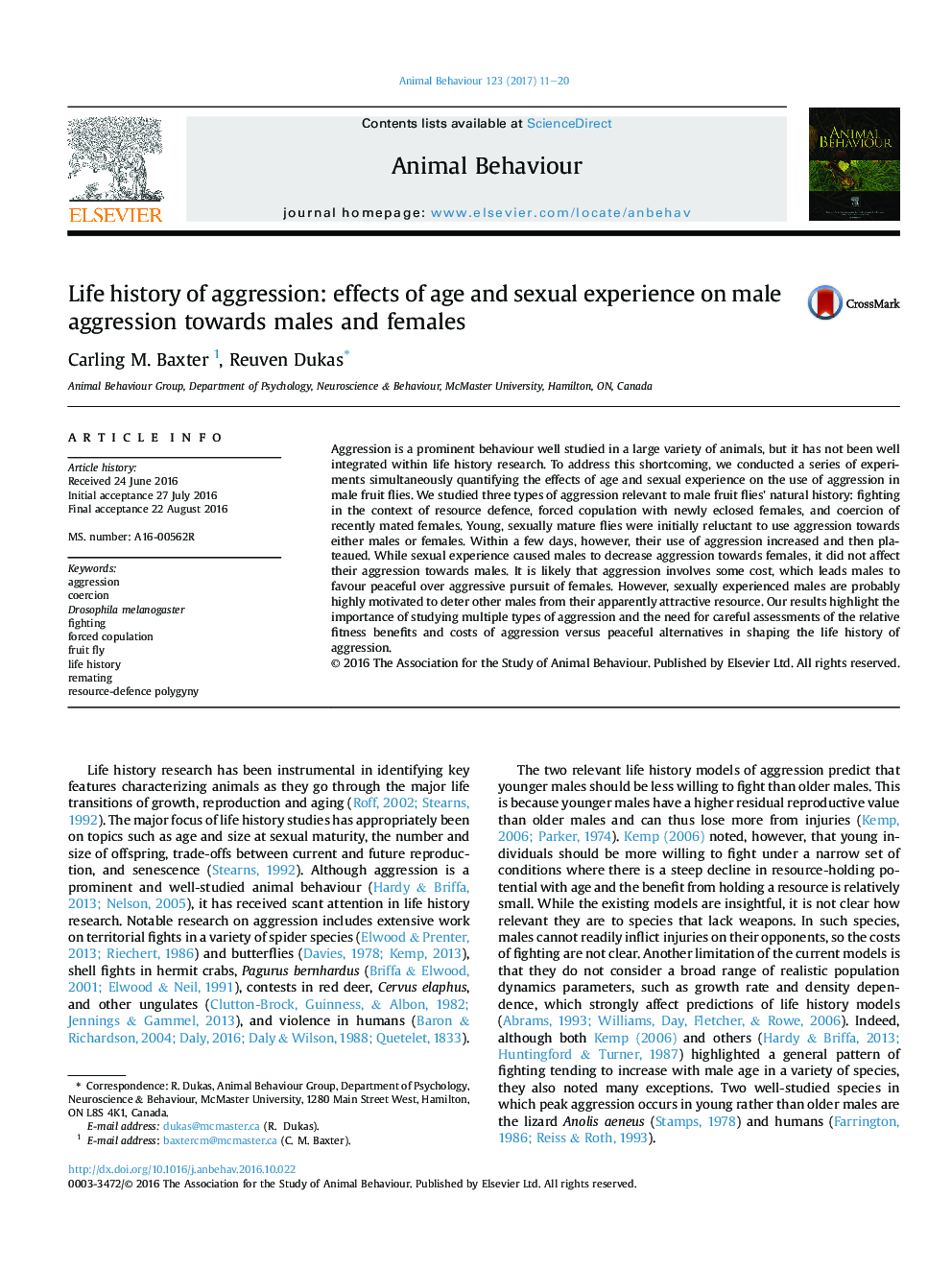| Article ID | Journal | Published Year | Pages | File Type |
|---|---|---|---|---|
| 5538566 | Animal Behaviour | 2017 | 10 Pages |
Abstract
Aggression is a prominent behaviour well studied in a large variety of animals, but it has not been well integrated within life history research. To address this shortcoming, we conducted a series of experiments simultaneously quantifying the effects of age and sexual experience on the use of aggression in male fruit flies. We studied three types of aggression relevant to male fruit flies' natural history: fighting in the context of resource defence, forced copulation with newly eclosed females, and coercion of recently mated females. Young, sexually mature flies were initially reluctant to use aggression towards either males or females. Within a few days, however, their use of aggression increased and then plateaued. While sexual experience caused males to decrease aggression towards females, it did not affect their aggression towards males. It is likely that aggression involves some cost, which leads males to favour peaceful over aggressive pursuit of females. However, sexually experienced males are probably highly motivated to deter other males from their apparently attractive resource. Our results highlight the importance of studying multiple types of aggression and the need for careful assessments of the relative fitness benefits and costs of aggression versus peaceful alternatives in shaping the life history of aggression.
Keywords
Related Topics
Life Sciences
Agricultural and Biological Sciences
Animal Science and Zoology
Authors
Carling M. Baxter, Reuven Dukas,
